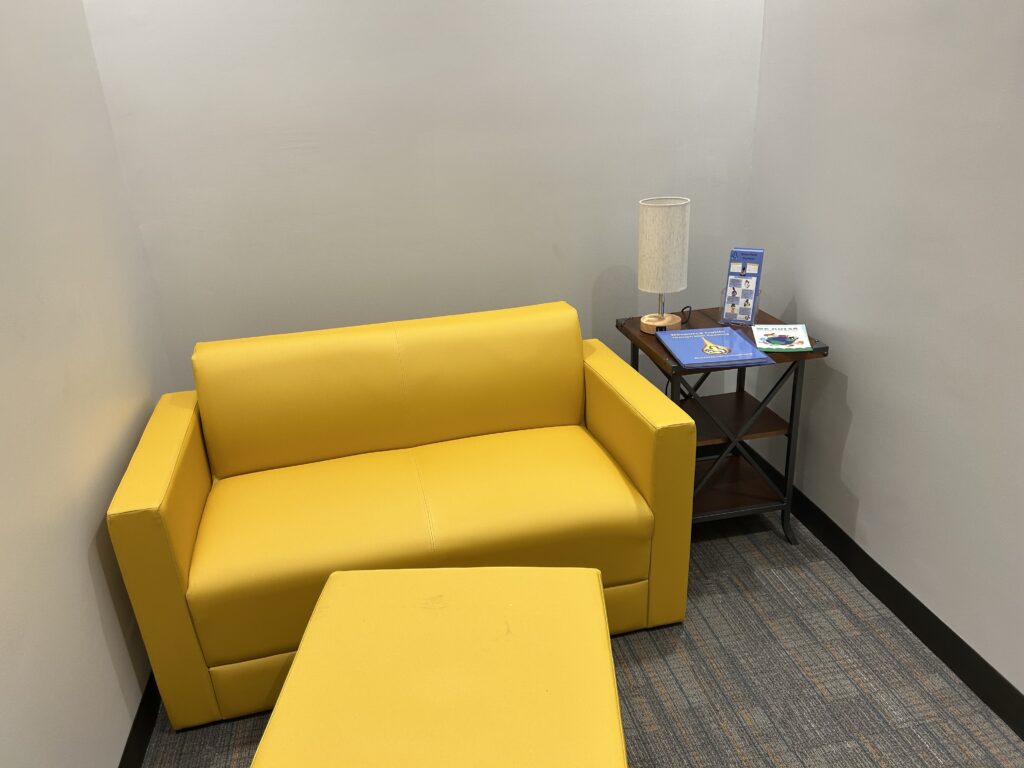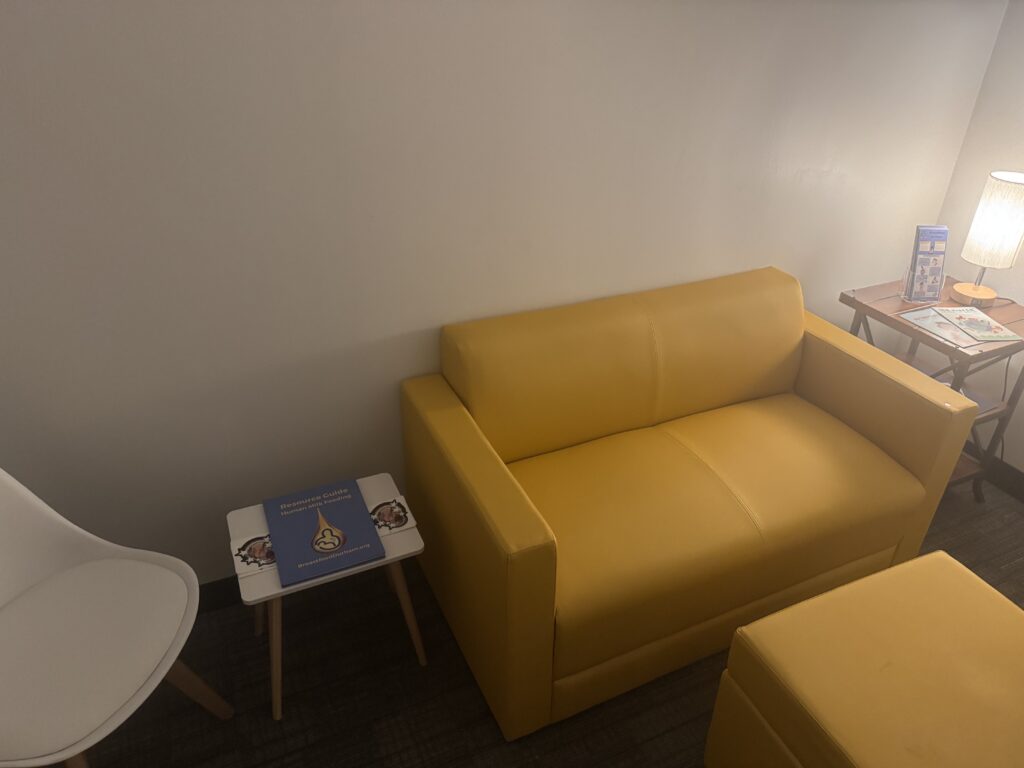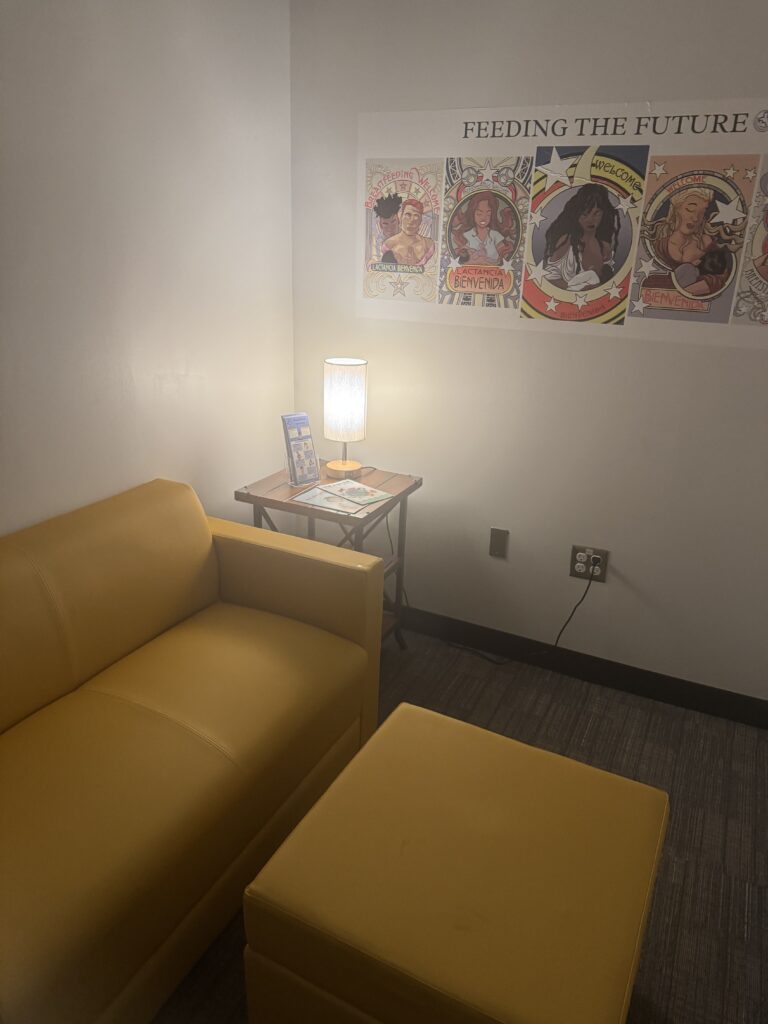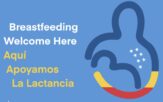Durham Technical Community College is making significant strides toward becoming a Breastfeeding Family Friendly Community (BFFC) Partner. While they have not yet met all the criteria for full designation, the institution has taken important steps to support lactating students, staff, and faculty. Their ongoing efforts demonstrate a commitment to normalizing, promoting, and celebrating breastfeeding and chestfeeding on campus.
Current Progress: Enhancing the Lactation Space
One of the key advancements at Durham Tech is the establishment of a designated breastfeeding room located on the first floor of Building 10 (Student Services). This space includes:
- A comfortable couch and ottoman
- A small table and lighting
- Electric outlets for pumping equipment
Providing a dedicated lactation space is an essential step in ensuring that breastfeeding students and staff feel welcomed and supported while on campus. Recognizing the need for additional comfort, Instructor Shawna Daniels and Program Director Cathy Collie-Robinson recently added adult-centered materials to make the space more inviting. They continue to seek out comfort items that will enhance the experience for lactating students, staff, and faculty.





Breastfeeding Education Integrated Into Curriculum
Durham Tech is also making progress in integrating breastfeeding education into its coursework. Three Early Childhood Education (ECE) courses currently include breastfeeding discussions:
- EDU 144 – Child Development I
- EDU 153 – Health, Safety, and Nutrition
- EDU 234 – Infants, Toddlers, and Twos
Expanding lactation-related education across disciplines, particularly in nursing, health sciences, and public health, could further enhance Durham Tech’s commitment to Step 10 of the Breastfeeding Family Friendly Community Designation.
Creating a More Engaging Learning Space for Future Educators and Young Visitors
Durham Tech recently received a preschool curriculum bundle designed to support both lactation spaces and early childhood education programs. Rather than simply placing all items in the lactation space, faculty members made a strategic decision to distribute them where they would have the greatest impact.
- Materials intended for lactating individuals, such as adult comfort items, were placed in the lactation space.
- Children’s materials, including books, a stuffed mama cat with kittens, and a stuffed dog, were moved to the reading corner of Durham Tech’s model classroom, where children occasionally visit.
This adjustment ensures that:
- Children visiting the classroom have access to engaging, developmentally appropriate materials.
- Students in Early Childhood Education (ECE) and related fields can observe and interact with breastfeeding-friendly resources as part of their training.
- The lactation space remains focused on the needs of those using it for pumping while still benefiting from select additions that enhance comfort.
By thoughtfully incorporating the preschool curriculum bundle across multiple spaces, Durham Tech has demonstrated an intentional and resourceful approach to supporting lactating individuals, young children, and future educators. This effort highlights the institution’s commitment to both breastfeeding-friendly policies and high-quality early childhood education.
Why This Matters
Recognizing Durham Tech as a Breastfeeding-Friendly Institution would not only provide essential support for current and future students but also set a precedent for other community colleges in the region. By investing in policies, education, and lactation-friendly environments, Durham Tech has the potential to become a leader in breastfeeding support among community colleges.
With continued collaboration and commitment, Durham Tech is well on its way to achieving full Breastfeeding Family Friendly Community status. Breastfeed Durham looks forward to supporting the college as it takes these next steps in fostering an inclusive and welcoming environment for lactating families.
